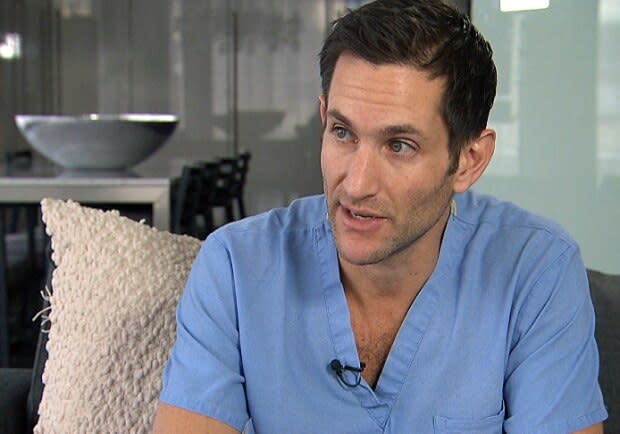Ontario needs 900 new ICU beds to cope with coming surge in COVID-19 patients, models suggest

Ontario will have to add nearly 900 new intensive-care beds to its existing supply to be able to handle the surge in COVID-19 patients forecast under the best-case scenario in provincial models of the pandemic.
The province has an estimated 415 ICU beds available now, as the Ford government attempts to create the hundreds of new spaces experts expect they'll need.
The additional beds would result in an approximate total of 1,300 dedicated ICU beds for COVID-19 patients.
The models released by the province on Friday suggest an increase in demand that could, in the best-case scenario, peak on April 18, but remain below Ontario's total capacity if all 900 new beds are made available by then.
In the worst-case scenario, demand for ICU beds would rise sharply until at least the end of April, exceeding the province's capacity as early as April 14, even with all 900 new spaces.
However, that scenario will likely never come to pass, as signs indicate that the number of COVID-19 patients isn't actually increasing as quickly as researchers thought it would.

Health officials say a continued commitment to physical distancing will help Ontario avoid the untenable strain on hospitals suggested by the worst-case numbers.
"If we can keep the prevalence of the disease to a lower level, the capacity that we have online, or that we could bring online, would indeed be sufficient," said Matthew Anderson, president and CEO of Ontario Health.
The latest models also suggest that between 3,000 and 15,000 people will die of COVID-19 in Ontario during the pandemic. The model also forecasts 80,000 total cases by the end of April.
Few ICU beds remain at several GTA hospitals
Data obtained by CBC News shows a rapidly dwindling number of ICU beds in the Greater Toronto Area.
Just nine critical-care beds remain available among the 153 ICU beds in the hospitals of the Central Local Health Integration Network. Reports also show just 18 ICU beds available among the 130 critical care beds among the hospitals in the Mississauga Halton Local Health Integration Network
The Ontario government has given permission to all hospitals in the province to expand their capacity for COVID-19 patients, though it is not yet clear if they will have the staff necessary to accommodate that growth.
Health Minister Christine Elliott said the province is recruiting retired nurses, medical students and other volunteers to help staff overstretched hospital departments.
Elliott said other hospitals may begin renting hotels, motels or retirement homes to increase capacity. Others, she said, are using field hospitals to prepare for the influx of patients.
"That is something that is calibrated on an hour-by-hour basis, depending on where the outbreaks are happening," Elliott said on Friday.
"We are ready to go, depending on where the hotspots are with COVID-19 and what each individual hospital needs, but they all have an individual plan in place right now to expand their capacity."
There's a 'war being fought,' emergency doctor warns
But some frontline workers say there's not much more room to expand past their current capacity.
Dr. Brett Belchetz, a Toronto emergency room physician, said although their hospital isn't yet overrun, they're not far from their limit.
"If volumes are going to go up tremendously … we certainly will very quickly be in a situation where we will not have the equipment or the space or the supplies to care for those people," Belchetz said in an interview with CBC Toronto.
Although he said fewer COVID-19 patients are arriving at his emergency room, most of the people who are coming in are quite sick.

And what people need to understand, Betchez said, is that "there is a war being fought out there."
If the province's COVID-19 restrictions are unsuccessful, he said there won't be enough ventilators to help all patients who are critically ill.
"The only way that we can stop that from happening is to prolong the outbreak to make sure we don't have all those cases at the same time," Beltchetz said.
"We cannot let our guard down."


